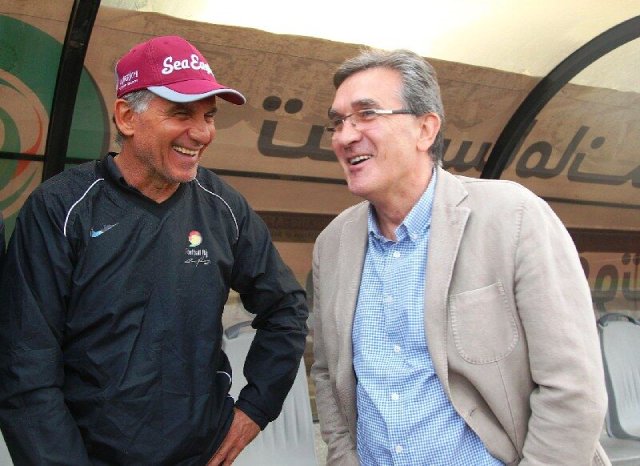The Persian version of this article has printed in “Goal” Daily, Dated: Thursday, January 5, 2017.
Capitulation in Iranian Football!
Vahid Namazi
1- When Abbas Mirza was defeated by General Paskevich, the Russian Tsars, through the Treaty of Turkmenchay, forced our Iran to accept a law that stripped the Iranian government of the right to judge or prosecute foreign advisors. This law, known as capitulation, persisted into the Pahlavi era until the surging wave of protests led by Imam Khomeini and the people dismantled the monarchy and relegated capitulation to the pages of history. Today, capitulation no longer exists in Iran—yet events in Iranian football suggest we are still living in that era. Foreign advisors in our football do as they please, and the only thing that does not happen is fair and just judgment against their norm-breaking, “anti-Iranian” behaviors, or, more crucially, the prevention of such anti-national conduct!
2- The Queiroz-Branco equation is not so complex or unsolvable that the Iranian Football Federation, as the governing body of the sport, should require so much time and wasted effort to resolve this dispute. The issue is not that unclear: a club coach, backed by a large fanbase, a history of coaching the national team, and a strained relationship with the current national team coach, has criticized a training camp he deemed unnecessary. He never said he would withhold his players from the national team; in fact, he welcomed the inclusion of more of his players. While Branco’s attack on the federation’s programs and planners is highly reprehensible and ill-timed given the current sensitive circumstances, it is hardly a crime so grave as to warrant metaphorical beheading or total annihilation!
3- Both Queiroz and Branco command strong popular support and numerous fans. Relying on this base, each seeks to outmaneuver the other and prove their own superiority. While Queiroz’s sharp reaction to Branco’s harsh criticism—and the “respectful” expulsion of seven Persepolis national team players—may not have been predicted with such precision, there was no doubt that the fiery Portuguese coach, with his history of aggressive responses to critics, would deliver a severe retort to Branco’s remarks. For this reason, the Football Federation and its president, Mehdi Taj, should have been foresightful and managerial enough to prevent the deportation of key national team players from the camp. Yet, it seems the influence of “others” in Queiroz’s ear far outweighs any words from Taj—if the president even spoke at all!
4-Nothing is more important than safeguarding national interests. The Football Federation, as the steward of a significant part of the nation’s sports, must protect these interests. Undoubtedly, in an Islamic society where freedom of expression is upheld, club and national team coaches are free to voice their opinions on Iranian football matters and protest against injustices, discrimination, and wrongs. However, when their statements cross the red line of national interests and harm them, the federation must act swiftly to block the entry of controversies and curb the fervor of ill-wishers. Of course, before taking action, the federation should have prioritized prevention, fostering effective two-way communication between club coaches and Queiroz to block the path of controversies.
5- Queiroz and Branco are both foreign advisors. Their duties are clear, and their scope of authority should naturally be defined. Yet, it seems each enjoys a kind of immunity that allows them to wreak havoc on “Iranian football” without a second thought! The day Branco signed his contract with Persepolis, backed by funds from a notorious banking debtor, he surely knew he was entering a country where the national team coach might stir up new troubles daily and take his players. Likewise, the day the federation agreed to Queiroz’s unreasonable demands, granting him free rein to interfere in planning and scheduling, it clearly wasn’t thinking of national interests. Had it done so, the self-inflicted crisis now threatening our national team’s interests would not have arisen.

